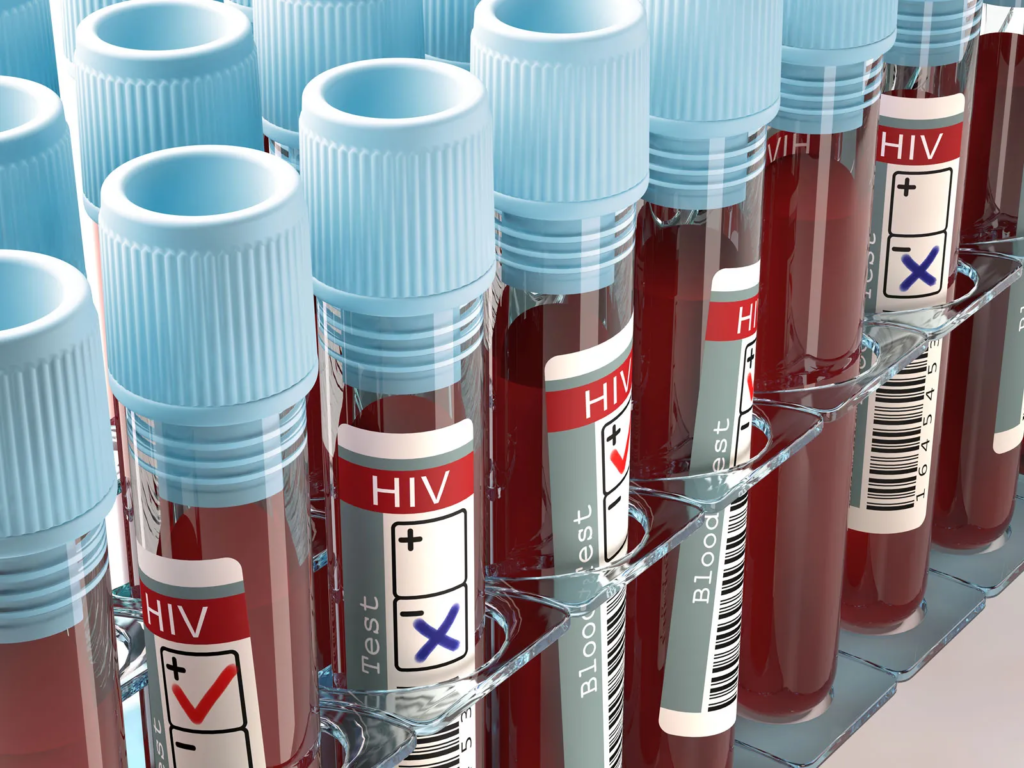Tripura faces a severe crisis with 828 students testing positive for HIV infection in Tripura and 47 deaths. Learn about the causes, symptoms, and efforts to combat HIV infection in Tripura.
Tripura is currently grappling with a severe HIV crisis, particularly among its student population. The HIV infection in Tripura has seen a sharp rise, with 828 students testing positive and 47 deaths reported. This alarming situation has been brought to light by the Tripura State AIDS Control Society (TSACS), which underscores the urgent need for intervention and awareness.
A senior TSACS official disclosed the concerning statistics, stating, “We have registered 828 HIV-positive students. Of these, 572 are still alive, and we have lost 47 to the infection. Many students have migrated out of Tripura for higher studies.”
The gravity of HIV infection in Tripura was highlighted during a media workshop organized by the Tripura Journalist Union, Web Media Forum, and TSACS. The Joint Director of TSACS provided a comprehensive statistical overview, shedding light on the widespread nature of the problem.
He detailed, “We have identified 220 schools and 24 colleges and universities where students are addicted to intravenous drug abuse. Data was meticulously collected from 164 health facilities across the state, encompassing almost all blocks and subdivisions.”
As of May 2024, 8,729 individuals in Tripura have been registered in ART (Antiretroviral Therapy) centers. Among these, 5,674 are still living with HIV. This group comprises 4,570 males, 1,103 females, and one transgender individual. These numbers reflect a broad demographic affected by the HIV infection in Tripura.
The surge in HIV infection in Tripura is primarily linked to intravenous drug abuse. Bhattacharjee, a senior TSACS official, remarked, “Most of the affected children come from affluent families. By the time parents realize their children are addicted to drugs, it is often too late.”
The health authorities and community leaders are deeply concerned and are actively working to educate the public and prevent further infections. Dr. Samarpita Datta, Project Director of TSACS, emphasized the need for heightened awareness and proactive measures to combat the epidemic. The workshop, attended by representatives from the Tripura Web Media Forum and Tripura Journalist Union, underscored the urgent necessity for collaborative efforts to address this public health crisis.
Efforts to combat the spread of HIV infection in Tripura focus on strengthening healthcare interventions, supporting affected communities, and raising awareness to prevent future outbreaks among vulnerable populations, particularly students. A concerted response from all sectors of society is essential to ensure effective prevention, care, and support for those affected by HIV infection in Tripura.

Causes of HIV Infection
Understanding the causes of HIV infection in Tripura is crucial for addressing and preventing further spread. HIV is transmitted through:
- Bodily Fluids: The primary mode of transmission is through bodily fluids, including blood, semen, vaginal fluids, and breast milk. Sexual contact is a significant route of transmission.
- Sharing Needles: Intravenous drug users are at high risk as they often share needles, which can be contaminated with the virus.
- Mother-to-Child Transmission: HIV can be transmitted from an infected mother to her child during childbirth or breastfeeding.
- Blood Products and Organ Transplants: Although rare, HIV can be transmitted through infected blood products or organ transplants.
- Occupational Exposure: Healthcare workers are at risk if they come into contact with infected blood or needles.
Symptoms of HIV Infection
Recognizing the symptoms of HIV infection in Tripura is vital for early diagnosis and treatment:
- Acute HIV Infection: The initial stage may present flu-like symptoms, including fever, rash, and muscle aches.
- Clinical Latency Stage: During this stage, individuals may be asymptomatic but the virus remains active.
- Progression to AIDS: Without treatment, HIV progresses to AIDS, leading to severe immune system damage. This stage is characterized by opportunistic infections, cancers, and neurological disorders.
- Symptoms of AIDS: Symptoms include significant weight loss, persistent fever, fatigue, swollen lymph glands, chronic diarrhea, sores, pneumonia, and skin blotches.
Preventing HIV Infection
Preventing HIV infection in Tripura requires a multifaceted approach:
- Education and Awareness: Increasing awareness about the modes of transmission and promoting safe practices are crucial.
- Safe Sexual Practices: Encouraging the use of condoms and regular testing can reduce the risk of sexual transmission.
- Needle Exchange Programs: Providing clean needles to intravenous drug users can prevent the spread of HIV.
- Mother-to-Child Prevention: Antiretroviral treatment for pregnant women can significantly reduce the risk of transmission to the baby.
- Healthcare Safety: Ensuring that blood products and medical procedures are safe and free from contamination.
Efforts to combat the HIV infection in Tripura must be sustained and intensified. The focus should remain on strengthening healthcare interventions, supporting affected communities, and fostering greater awareness to prevent future outbreaks among vulnerable populations, especially students. The situation demands a concerted response from all sectors of society to ensure effective prevention, care, and support for those affected by HIV infection in Tripura.
(with ANI inputs)
For further insights and comprehensive content, please visit our homepage



